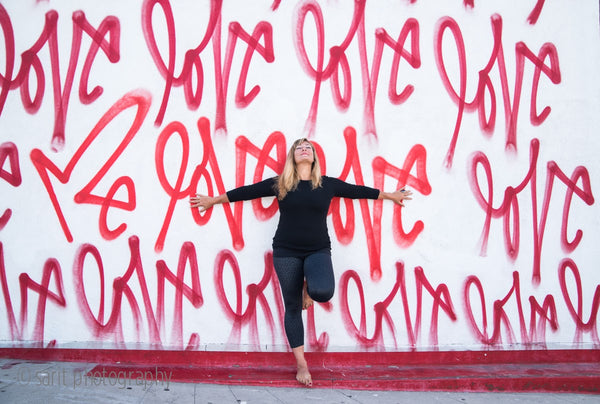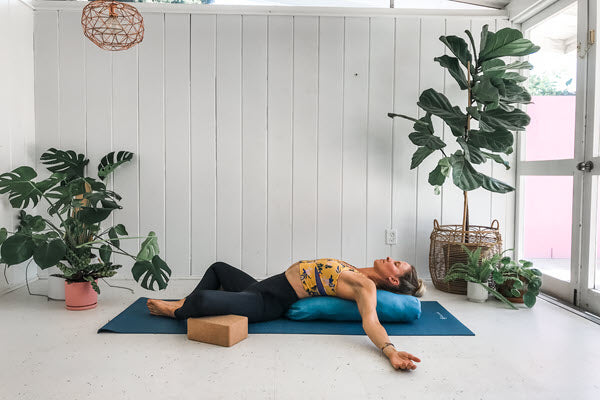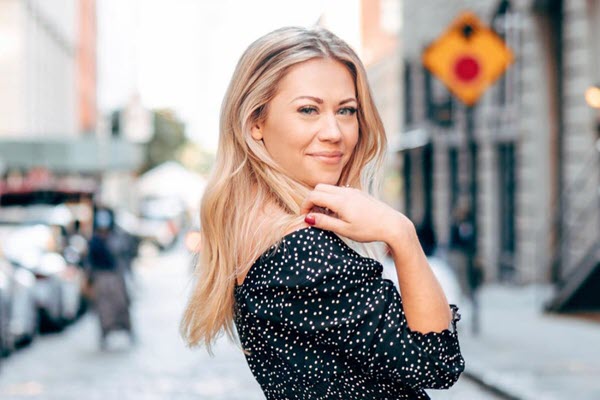Yoga at Boulder High School
Boulder High School looks the way you’d expect a high school to look. It’s got cinderblock walls and classrooms full of chairs with hinged faux-wood desks. The football field out back has long, wild grass because it’s spring; football season has been over for months. Students sit outside in the late April sunshine, make their way to classes, and attend P.E. in the gym. But what happens in that gym is far from typical. Since the fall of 2014, yoga has been taught at Boulder High School as a full-time part of the physical education curriculum. There are several teachers, from cross-country coach Monique Guidry — who admits that her students are often more experienced yogis than she is — to BHS football coach William Shaw, a former NFL defensive lineman with arms the size of tree trunks.

In the fall of 2011, Betty Estrada and Beca Humphrey were two high school girls who liked yoga. They rounded up half a dozen of their friends and began practicing together on Wednesday mornings, when the entire student body is given a “late start” at 9:00 a.m. After a few weeks, more and more students were expressing interest, so Betty and Beca approached Monique and asked her to be the faculty sponsor for an official yoga club. They scheduled the club to meet during the “late start” and its popularity exploded. Despite the opportunity to start classes an hour later than usual, students were walking to school early, in the snow, to practice yoga. “They were coming, even though they could have slept in,” Monique remembers. “They could have taken the comfortable way out.” Monique had been leading yoga classes for the club, but she was self-taught and quickly found that she needed help with the growing numbers of students. She recruited Shanti Medina, an experienced yoga teacher, the marketing director for Give Back Yoga, and creator of the Body Current modality. Shanti began teaching the morning classes with Monique and marveled at the number and variety of students who attended, from football players to shy students who’d never practiced before.

Eventually, the equipment BHS had available started to wear out, so Shanti reached out to Gaiam and asked them to donate mats to the school. Within days, two boxes of mats arrived, so students could practice on fresh equipment. Interest was such that Monique, Betty, and Beca approached the school district to have the yoga club incorporated into the curriculum as an official class. Roy Holliday, then in charge of the physical education curriculum, was intrigued. He had been speaking to parents about what they wanted for their children, and many wanted a departure from the typical gym class from their own childhoods. “They really wanted their child to have a physical education experience that was different,” he recalls. “One that wasn’t necessarily focused on the time in which you run the mile, how many sit-ups or pushups you do, or team sports.”
Monique echoes his sentiments. “Physical education is moving away from the traditional team sports,” she says. “Even though we’ll still use some of those games, we’ll use them in the context of ‘how do we gain fitness?’”

Four years have passed since the club began, and Betty and Beca are in college now, but the yoga program is stronger than ever. Thanks to Roy’s lobbying and the enthusiasm at BHS, yoga is now an official part of the physical education curriculum at all 14 Boulder Valley School District high schools. Gaiam donated an additional 250 mats to the district to get them started, though many students are now so excited about their practice that they’re bringing their own.
For these teenagers, yoga has had a dramatic effect, both on and off the mat. “It’s definitely helped me to calm myself down in certain stressful situations,” says Claire, a freshman at BHS, “especially related to school.” Hannah, a senior, mentions that she can focus better in class because her posture has improved. “The reasoning behind a lot of the work that we’ve been exploring around wellness and movement is the benefit that movement brings to student learning,” says Roy. Students who take yoga classes are able to get the mental benefits of physical exercise without the stress of self-comparison that often comes with timed laps and counting reps in the weight room.
According to Shanti, those benefits will continue long after these kids leave high school. Betty and Beca both attest to yoga’s power to reduce stress from their college curriculums, and credit their early dedication to the practice for giving them the discipline to continue it in a less structured environment. “These tools and skills that they learn in a community-based yoga class,” says Shanti, “can help them in so many ways as they grow up.”

Many people scoff at the idea that 13-year-olds need stress relief, as the idea that teenagers don’t have “real” problems and need to be toughened up for the real world is pervasive. But according to the American Psychological Association, 40% of teens report feeling irritable or angry; 36% report nervousness or anxiousness. A third say stress makes them feel overwhelmed, depressed, or sad. And that doesn’t go away as they get older. More than a third of adults report experiencing “significant” stress in the last year. The National Sleep Foundation’s most recent Sleep Index study revealed that 35% of adults rated their sleep as “poor” or “fair,” and 25% reported that they did not wake up feeling refreshed at least once during the previous seven days. And 80% of adults experience at least one episode of low back pain in their lifetime. If yoga can help with all of those things — stress, sleep, posture, pain, emotional instability — it’s sounds like a good idea to give students a head start.
Leave a comment
Comments will be approved before showing up.
Also in Blog

Body Peace & Personal Empowerment

Yoga for Swimmers: Poses for Strength and Mobility

